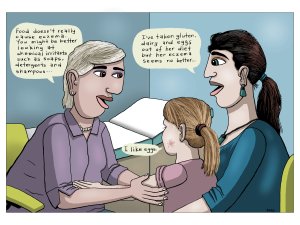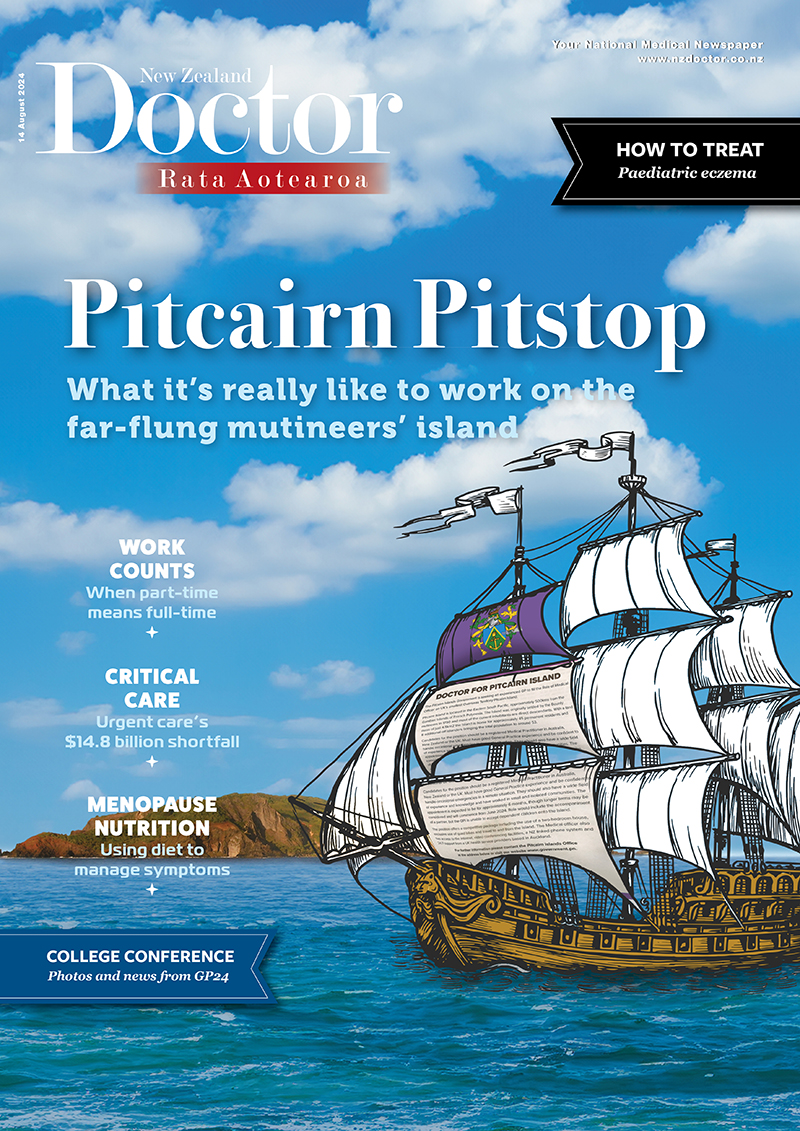Specialist GP Nikki Vadgama provides some tips to make your next paediatric eczema consult easier. She includes a review of new guidelines, resources, websites and medications for paediatric eczema management
New Zealand urologists support mesh option for treatment of incontinence
New Zealand urologists support mesh option for treatment of incontinence
The Urological Society of Australia and New Zealand (USANZ) believes women should be allowed to have a full choice of options, that includes the mid urethral sling, for the treatment of stress urinary incontinence.
Urologists treat women with stress incontinence, or urine leakage with activity, a condition that is common after childbirth. Nearly one in ten women will need surgery for stress incontinence by the time they reach 80. Incontinence is not normal and is associated with poor quality of life and greater care needs for ageing New Zealanders.
The condition affects around 17 percent of adult women in New Zealand. Incontinence costs New Zealand around $8.05 billion annually. The condition is both socially and emotionally debilitating, with strong links to depression.
Transvaginal mesh has been at the centre of class actions around the world and regulatory bodies in New Zealand and Australia have placed restrictions on its use for prolapse only. In Australia a Senate Inquiry has recommended that ‘transvaginal mesh be used as a last resort’.
“New Zealand urologists broadly support the Senate Inquiry’s recommendations to enhance safety and communication with relation to the mesh product and support their Australian colleagues’ view that that women in both Australia and New Zealand should be given the choice to have a mid urethral sling for treatment of their stress incontinence,” says New Zealand based, Urological Society Vice President, Dr Stephen Mark.
“The mid urethral sling is the most scientifically studied surgical procedure for stress incontinence in history and has substantially improved many thousands of women’s quality of life. Overwhelming clinical evidence shows that in the majority of cases patients have a durable, effective and safe outcome from sling surgery. There are other sound alternatives to the mid urethral sling but these have a higher morbidity and a longer recovery period, with the same potential risk of complications.
“Urologists recognise that some women have had significant, sometimes devastating adverse events in relation to the placement of mid urethral slings and we support improvements in relation to safety, communication and ongoing monitoring,” says Dr Mark.
“The difficulties some women have experienced in relation to mid urethral sling placement has not always been a result of the technology alone and Urologists are experienced in managing such complications,” says Dr Giovanni Losco, a urologist specialising in female incontinence.
“Being able to offer the mid urethral sling as an option for women is important. The mid urethral sling has allowed many older women to have safe, successful treatment of their incontinence. Shared decision making between a women and her surgeon remains paramount to the management of incontinence,” says Dr Losco.
Urologists are the only specialists able to offer a full range of non-mesh options for women who suffer from this debilitating condition. Surgeons treating stress incontinence should be able to offer patients a full range of options, including non-surgical management, natural tissue slings and injections of bulking agents as well as mid-urethral slings to ensure women are fully informed."
The mid urethral sling is still offered in the initial choice of surgeries in the NHS in the United Kingdom, many EU countries and the USA.




